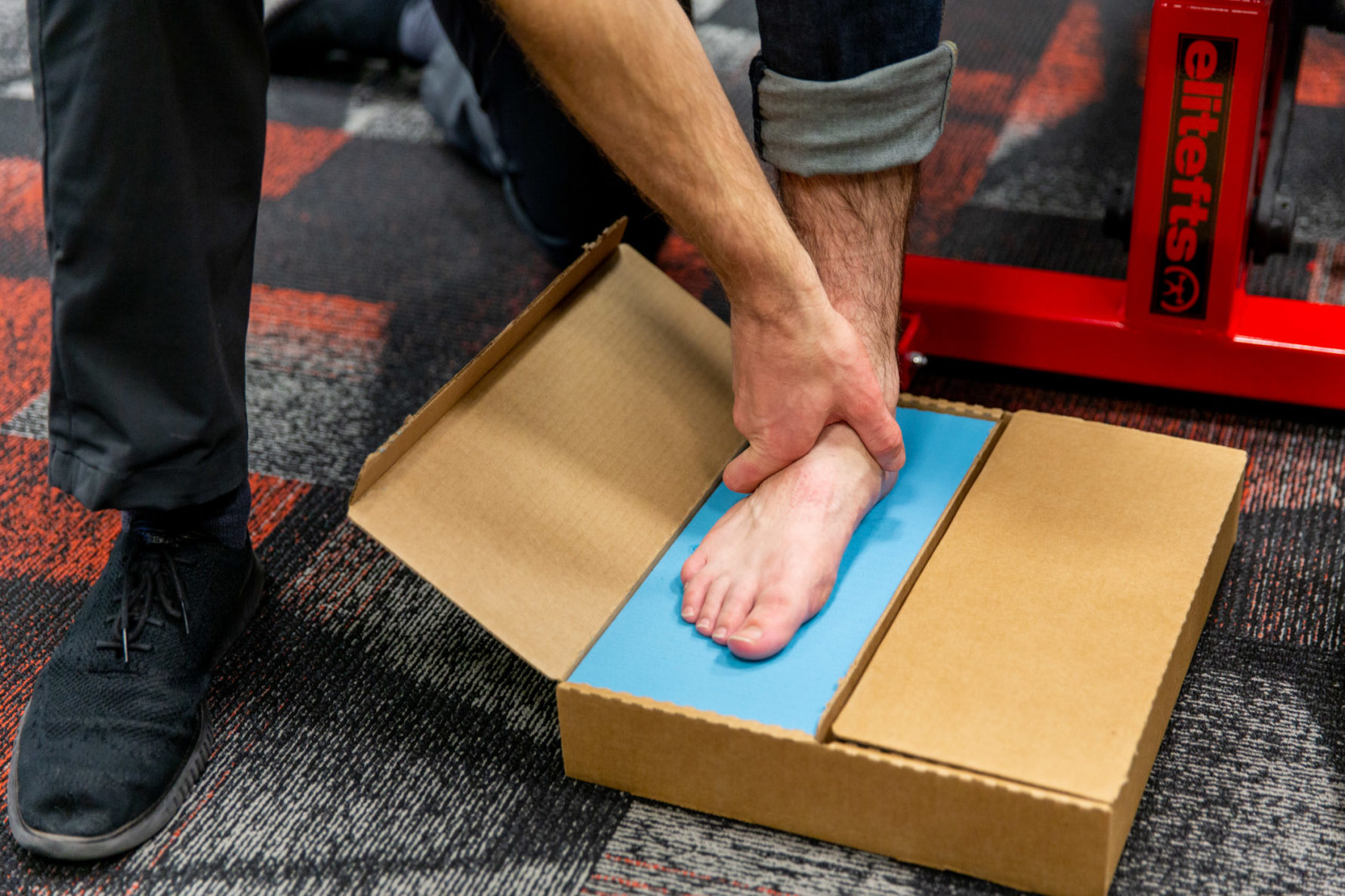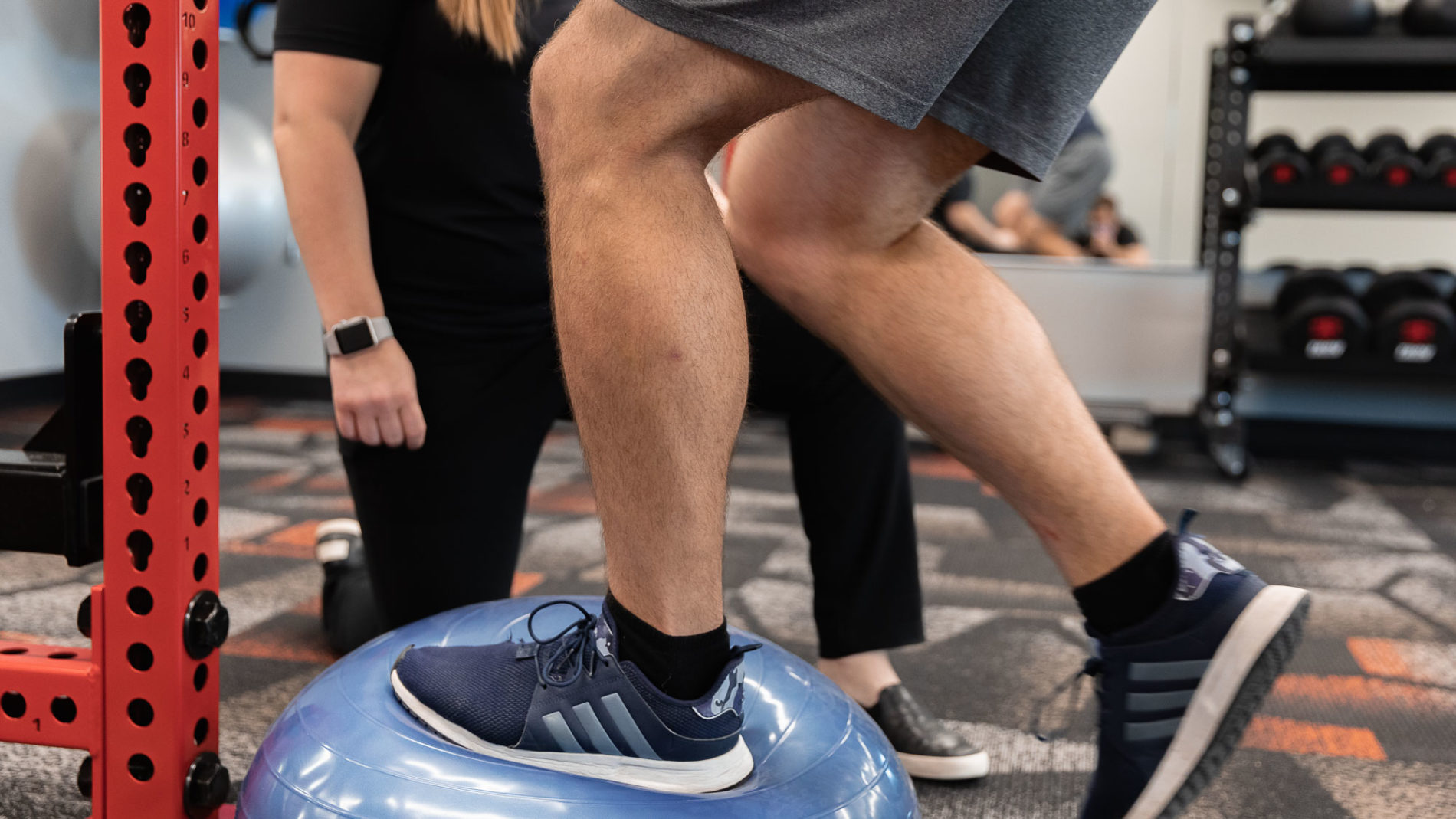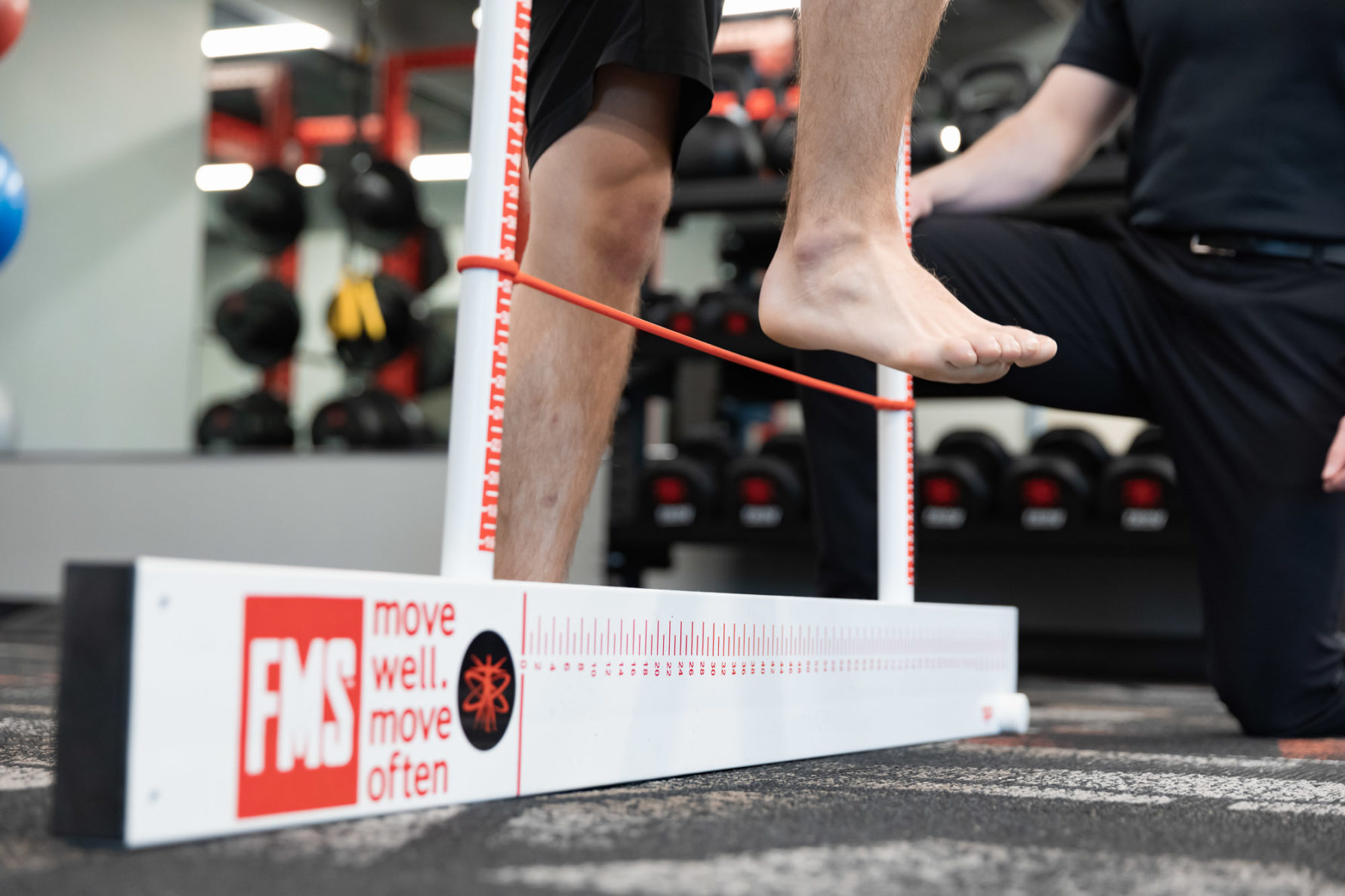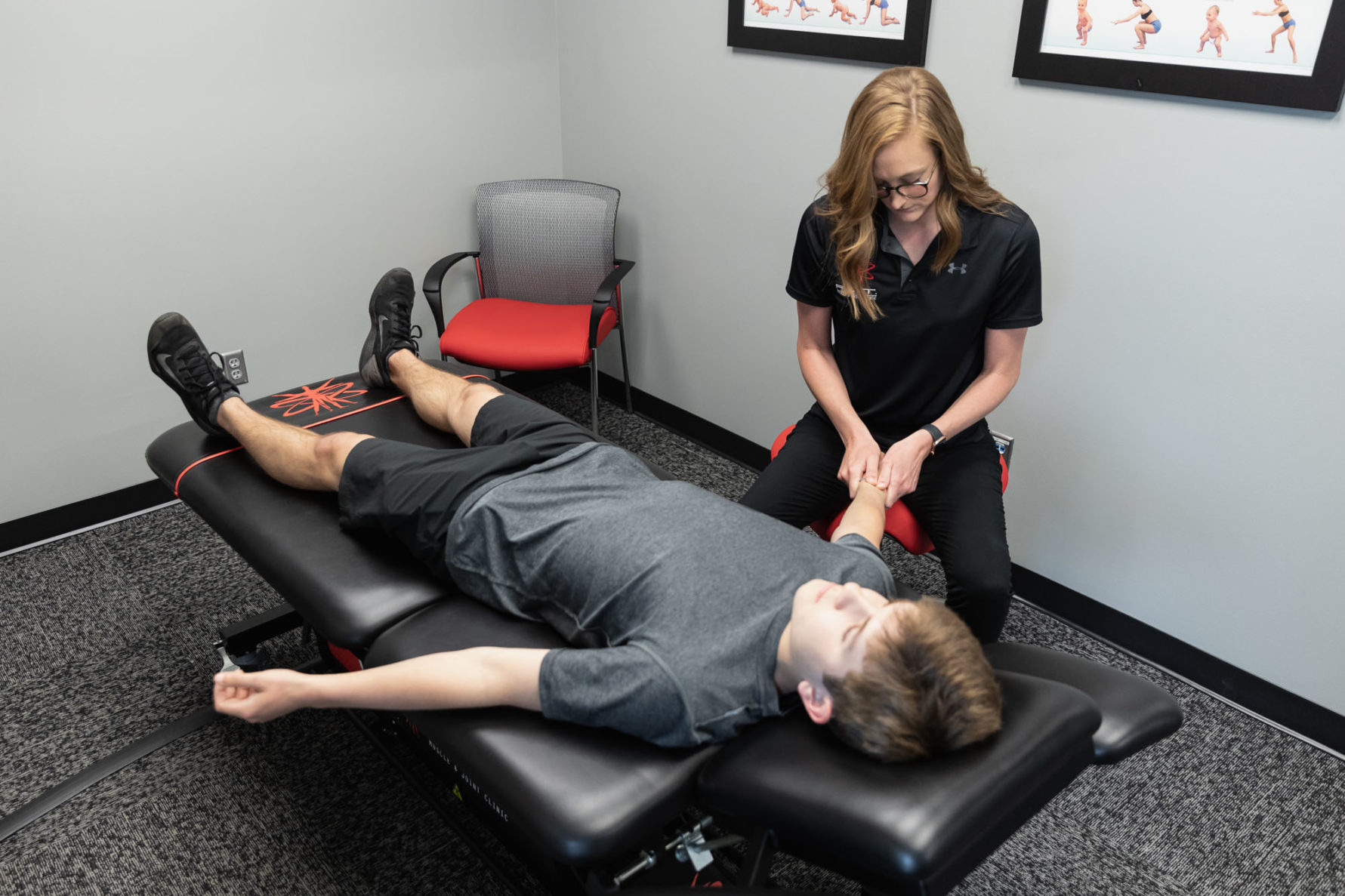
Ever wondered if you were wearing the right running shoes? If you’ve found yourself asking “how should running shoes even fit?” Our Kansas City experts can help.
Read on to learn more about running shoes and how to find your perfect fit.
How should running shoes fit?
There are many factors you should consider when searching for the proper running shoe, including foot type, running pattern, and running surface. What works well for one runner does not translate to all runners, and there are certain aspects that can be tailored specifically to your unique foot and running mechanics.
How should your running shoes fit? What are the most important aspects to consider when looking for the right running shoe?
Have your feet properly measured so you have an accurate idea of what the length and width of what your feet are.
- Your foot hits the ground many times during a run, and feet naturally expand when they strike the ground. Running shoes should be slightly bigger than your normal shoe to accommodate this fluctuation.
- Running shoes that are too small can cause ingrown toenails, bunions, corns, or hammertoes, while also causing muscular imbalances throughout the body.
- There should be a thumb’s width of space at the toe; however, there should be little to no slipping around your arch and heel. You want your running shoe snug, but not tight.
Know your arch type.
- This can be measured to determine if you overpronate, oversupinate, or have a neutral landing pattern. Different types of running shoes will provide different support based on specific arch type.
Try several pairs of shoes on and wear the socks you will typically use for activity.
- Don’t just “try them on” for looks; run in them! You may feel silly, but you need to get a good feel for the shoe in the activity you’ll be using them for.
- Feet swell as the day goes on, so try to shop for running shoes at the end of the day to accommodate the swelling you’ll experience with running.
Check the flex point of the shoe.
- Hold the heel and pressing the tip of the shoe into the floor.
- You want the shoe to bend along the same line that your foot flexes.
- Improper alignment can lead to pain in the arch or plantar fasciitis.
- Poor flexibility in the shoe leads to Achilles or calf issues.
Need more help determining how your running shoe should fit in Kansas City?
There are many shoe stores in the Kansas City area that use this information to find the right type of running shoe for you. Places such as Garry Gribble’s and Run816 are a few local stores to go to for running shoes. The doctors at F.I.T. Muscle & Joint Clinic are also all qualified to assess your foot and running pattern to determine if there are any movement impairments that need to be addressed to improve performance or relieve pain.
Contact us today to learn more about how running shoes should fit in Kansas City.



